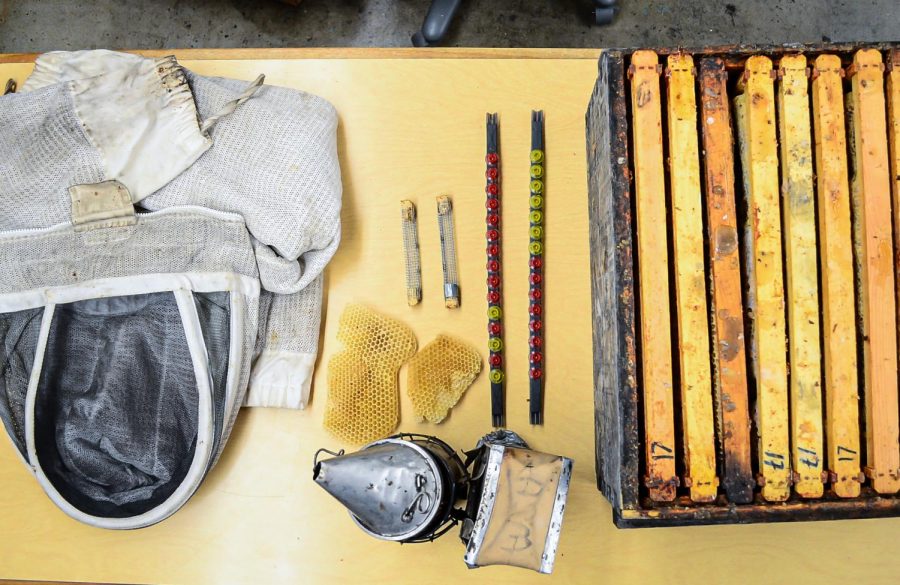Extension site offers five-week beekeeping class
Class will cover basic bee biology, equipment use, honey extractions
Retired zoologist Dave Pehling said beekeeping practices differ from region to region and the class at the site will focus specifically on western Washington.
November 19, 2019
WSU started a five-week course for beginning beekeepers. It began Monday from 6:30-9:30 p.m. at the WSU Snohomish County Extension Cougar Auditorium in McCollum Park.
Dave Pehling, retired zoologist, said he is working through the WSU Snohomish County Extension to teach amateur beekeepers how to care for bees responsibly. The course will cover basic bee biology, beekeeping equipment, honey extractions, and pest management.
“We supply information on the procedures and products that are needed in order to have healthy, long-lived colonies,” Pehling said. He said measuring mite numbers and treating hives during infestations are essential, but the methods are not intuitive.
Since practices vary from region to region, Pehling’s class will focus on beekeeping in western Washington; this provides students with a uniquely specialized class for their region. The class will be supplemented with equipment, handouts and a manual. Pehling said he hopes that by the end of his class, he will have shown the importance of all bee health – not just honeybees.
“Honeybees are in no danger of becoming extinct. Our native bees, however, do need help, but it appears they are not charismatic enough to get public attention,” Pehling said.
Nick Naeger, WSU entomologist and bee specialist, said many people have misconceptions about beekeeping and how it is not the best way to help honeybees.
“It’s become so difficult to manage honeybee diseases that many beginning beekeepers end up becoming disease reservoirs that hurt neighboring bees,” said Naeger.
He said beekeepers who are uninformed about bee health have resulted in the spread of infectious diseases that are lethal to hives.
One of the most prominent bee infections is caused by the varroa mite. There are currently five known species of varroa and they are deadly.
“Honeybees are plagued by a parasitic varroa mite that does a lot of damage to them directly and it vectors diseases,” Naeger said.
Some of the major viruses transmitted through the varroa’s feeding include Sacbrood, Deformed Wing Virus and Chronic Bee Paralysis.
Providing a source of water for native bees (called bee baths), is also a tremendous help Naeger said.
“For people interested in bees, I would encourage them to also learn about our many native bees, plant lots of bee-friendly flowers and trees and eliminate pesticide use as much as possible,” Pehling said.





















